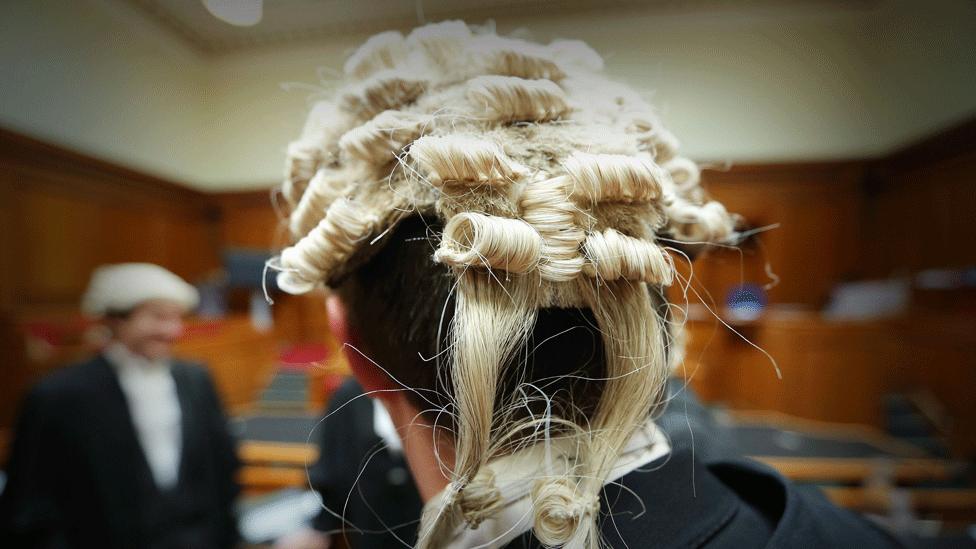Coronavirus in Scotland: High Court trials to resume in July
- Published

Court officials, legal representatives as well as the jury will need to be accommodated differently to how the had been pre-pandemic
High Court jury trials in Scotland are set to resume in July, a senior judge has announced.
Lady Dorrian has been leading a task force on how to restart the courts system amid the coronavirus pandemic.
In order to comply with social distancing rules, a single case could take up to three court rooms.
Lady Dorrian said: "The challenges in conducting 15-person jury trials in a physically distanced environment cannot be underestimated."
The working group concluded that different plans would be needed for separate courts.
It was thought a three-court solution would be used in the High Court in Glasgow, with the jury using the public gallery in the trial courtroom.
In Edinburgh, it is hoped to use two courts for each trial, with the jury viewing the trial remotely from a separate courtroom.
Further work is taking place to allow more jury trials in both the High Court and sheriff court, including possible changes to legislation to allow innovative digital solutions.
In the first phase, an initial number of High Court jury trials will take place in July.
Lady Dorrian, who is Lord Justice Clerk, said: "A pool of jurors must be cited, assembled and balloted in a way which respects social distancing guidelines.
"The Court facilities must be configured to ensure the safety of all those involved in the trial, including access for the public and for the media, whilst at the same time ensuring effective participation of all the main participants."
She said there was still plenty of work to do before the proposals could become a reality.
'Behind each delayed jury trial are victims'
The chief executive of the Scottish Courts and Tribunals Service (SCTS) told MSPs it was expected there could be a backlog of 1,800 trials at the High and sheriff courts by August.
Scotland's justice secretary welcomed Lady Dorrian's announcement, and praised the speed with which the courts had come up with a solution to the problem.
Humza Yousaf said: "In terms of criminal proceedings specifically, I am very conscious that behind each delayed jury trial are victims, witnesses and accused, who are all anxious to have their day in court and move on with their lives.
"This announcement by the Lord Justice Clerk [Lady Dorrian] brings us an important step closer to enabling this to happen in a manner which safeguards both the interests of justice and of public health."
Ronnie Renucci QC, who sits on the working group and is chairman of the Scottish Criminal Bar Association, welcomed the plan.
He said: "Whilst we do not underestimate the challenges, we are convinced that the enormous assembly of experience, energy and talent in Lady Dorrian's working group will galvanise our dormant but vital solemn criminal justice system with jury trials back at the heart of it."